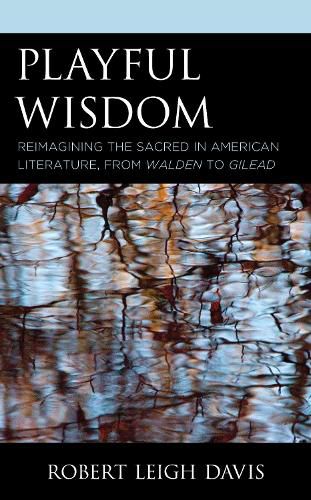Readings Newsletter
Become a Readings Member to make your shopping experience even easier.
Sign in or sign up for free!
You’re not far away from qualifying for FREE standard shipping within Australia
You’ve qualified for FREE standard shipping within Australia
The cart is loading…






Playful Wisdom: American Literature and Ludic Faith, from Walden to Gilead examines how Henry David Thoreau’s thinking about religious play created a theological legacy in American literature, one that includes Emily Dickinson, Jack Kerouac, Thomas Merton, Annie Dillard, and Marilynne Robinson. Although these writers differ in many ways, they all share Thoreau’s idea of an improvisational looseness or mobility in their thinking about the sacred, a sense that religious experience unsettles fixed belief and alters the very shape of the perceiving self. Robert Leigh Davis argues that from this perspective, unswerving orthodoxy is not as crucial as a light-handed responsiveness of spirit that constantly adapts to new perspectives and revises fixed assumptions in light of new experiences. This perspective, Davis posits, gives one the ability to respond to unstable moments of spiritual illumination that come and go by forming belief, then erasing it, and reforming it again in a spiritual practice that Dickinson refers to as nimble believing and Thoreau calls holy play. Scholars of literature, religion, and philosophy will find this book particularly useful.
$9.00 standard shipping within Australia
FREE standard shipping within Australia for orders over $100.00
Express & International shipping calculated at checkout
Playful Wisdom: American Literature and Ludic Faith, from Walden to Gilead examines how Henry David Thoreau’s thinking about religious play created a theological legacy in American literature, one that includes Emily Dickinson, Jack Kerouac, Thomas Merton, Annie Dillard, and Marilynne Robinson. Although these writers differ in many ways, they all share Thoreau’s idea of an improvisational looseness or mobility in their thinking about the sacred, a sense that religious experience unsettles fixed belief and alters the very shape of the perceiving self. Robert Leigh Davis argues that from this perspective, unswerving orthodoxy is not as crucial as a light-handed responsiveness of spirit that constantly adapts to new perspectives and revises fixed assumptions in light of new experiences. This perspective, Davis posits, gives one the ability to respond to unstable moments of spiritual illumination that come and go by forming belief, then erasing it, and reforming it again in a spiritual practice that Dickinson refers to as nimble believing and Thoreau calls holy play. Scholars of literature, religion, and philosophy will find this book particularly useful.